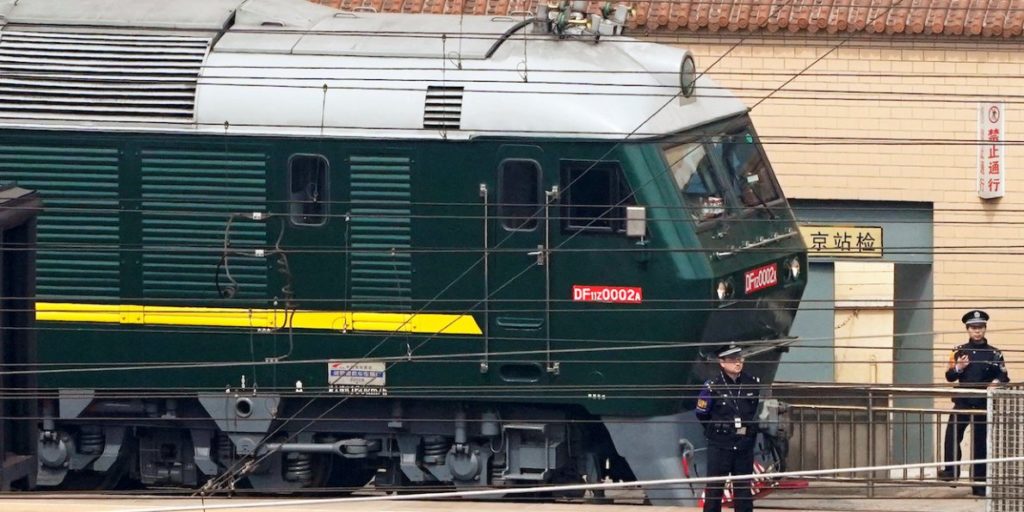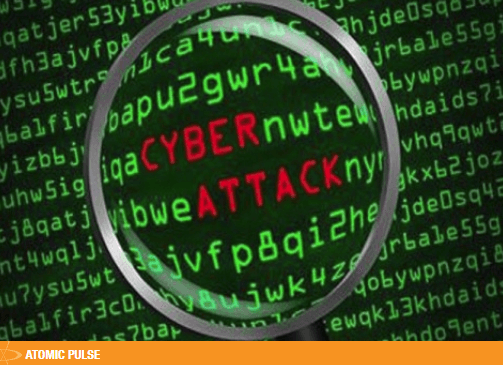What’s an appropriate response to news of an unexpected meeting in Beijing and newest moves by the US president threatening trade war with China? The first shots in the trade war are now fired, global markets are responding, and the visit of N. Korea’s leader to meet the Chinese president signal a new asymmetrical conflict

Photos from inside of Kim Jong-un’s armoured train
“I am pleased to announce that, effective 4/9/18, @AmbJohnBolton will be my new National Security Advisor. I am very thankful for the service of General H.R. McMaster who has done an outstanding job & will always remain my friend. There will be an official contact handover on 4/9,” Trump tweeted.
Via Reuters:
Washington – U.S. President Donald Trump said on Wednesday that Chinese President Xi Jinping told him that a meeting with North Korean leader Kim Jong Un had gone very well and that Kim looked forward to meeting with Trump.
“Received message last night from XI JINPING of China that his meeting with KIM JONG UN went very well and that KIM looks forward to his meeting with me. In the meantime, and unfortunately, maximum sanctions and pressure must be maintained at all cost!” he said in a tweet….
China briefed Trump on the meetings, according to the White House, which said the denuclearization pledge was “further evidence that our campaign of maximum pressure is creating the appropriate atmosphere for dialogue with North Korea.”
North Korean leader Kim Jong Un pledged his commitment to denuclearization and to meet U.S. officials, China said on Wednesday after his meeting with President Xi Jinping, who promised China would uphold friendship with its isolated neighbor….
North Korea’s KCNA news agency made no mention of Kim’s pledge to denuclearize, or his anticipated meeting with U.S. President Donald Trump that is planned for some time in May.
China has traditionally been secretive North Korea’s closest ally but ties have been frayed by its pursuit of nuclear weapons and China’s backing of tough U.N. sanctions in response.
China’s Foreign Ministry cited Kim in a lengthy statement as telling Xi the situation on the Korean peninsula was starting to improve because North Korea had taken the initiative to ease tension and put forward proposals for talks.
“It is our consistent stand to be committed to denuclearization on the peninsula, in accordance with the will of late President Kim Il Sung and late General Secretary Kim Jong Il,” Kim Jong Un said, according to the ministry.
North Korea was willing to talk with the United States and hold a summit between the two countries, he said…. “The issue of denuclearization of the Korean peninsula can be resolved, if South Korea and the United States respond to our efforts with goodwill, create an atmosphere of peace and stability while taking progressive and synchronous measures for the realization of peace,” Kim said.
Kim Jong Un’s predecessors, grandfather Kim Il Sung and father Kim Jong Il, both promised not to pursue nuclear weapons but secretly maintained programs to develop them, culminating in the North’s first nuclear test in 2006 under Kim Jong Il.
The North had said in previous, failed talks aimed at dismantling its nuclear program it could consider giving up its arsenal if the United States removed its troops from South Korea and withdrew its so-called nuclear umbrella of deterrence from South Korea and Japan.
Many analysts and former negotiators believe this still constitutes North Korea’s stance and remain deeply skeptical Kim is willing to give up the weapons his family has been developing for decades….
Widely read Chinese state-run newspaper the Global Times praised the meeting as proving naysayers wrong about Beijing-Pyongyang relations.
“China and North Korea maintaining their friendly relations provides a positive force for the whole region and promotes strategic stability in northeast Asia,” it said in an editorial.
Kim’s appearance in Beijing involved almost all the trappings of a state visit, complete with an honor guard and banquet at Beijing’s Great Hall of the People.
Kim and Xi also met at the Diaoyutai State Guest House, where Kim Il Sung planted a tree in 1959 that still stands….
China briefed Trump on Kim’s visit and the communication included a personal message from Xi to Trump, the White House said in a statement.
“The United States remains in close contact with our allies South Korea and Japan. We see this development as further evidence that our campaign of maximum pressure is creating the appropriate atmosphere for dialogue with North Korea,” it said.
Analysts said the meeting strengthened North Korea’s position ahead of any meeting with Trump by aligning Beijing and Pyongyang while reassuring China it was not being sidelined in any negotiations.
“It seems that North Korea is not ready to deal with the United States without support and help from its longtime ally China,” said Han Suk-hee, professor of Chinese Studies at South Korea’s Yonsei University.
A top Chinese diplomat, Politburo member Yang Jiechi, will brief officials, including President Moon Jae-in, in Seoul on Thursday about the Beijing talks, the presidential office in Seoul said.
Kim told a banquet hosted by Xi the visit was intended to “maintain our great friendship and continue and develop our bilateral ties at a time of rapid developments on the Korean peninsula”, according to KCNA.
Xi had accepted an invitation “with pleasure” from him to visit North Korea, KCNA said.
China made no mention of Xi accepting an invitation, but Foreign Ministry spokesman Lu Kang pointed to a line in their statement citing Xi as saying he is willing to maintain regular communications with North Korea via visits and exchanges of envoys and messages.
“I have to say that China and North Korea have a tradition of high-level mutual visits,” Lu told a daily news briefing….
_________________________________________________
Asymmetrical Conflict
Blowback, Cyberwarfare, Psyops: Planning to Deliver Chaos
Case example: Cyberattacks on Nuclear Power Plants: How Worried Should We Be?
The Nuclear Threat Initiative recently highlighted fast-rising cyberwarfare risks, focusing especially on nuclear plants and nuclear command and control.
The capabilities to project offensive attacks via computer networks, systems, apps, social media and surprise attack elements is now becoming a reality wielded by all network-connected states.
The weaponized computer delivers disproportionate impact for money invested and, as so, Strategic Demands projects that any future conflict will involve significant computer-assisted weapons.
A full-range of computerized weaponry including disruption of infrastructure will be asserted and deployed, mobilized to damage and destroy, as well as defend against cyberattacks.
The concept of asymmetrical warfare, now and in the future, must take in consideration the costs of this new type of warfare.
The current threats to initiate war, whether first strike, preemptive or preventive, conventional or nuclear, must take into consideration a full spectrum of warfare and a distinct type of cyberwarfare that will involve deep costs across the human, economic and environmental life-supporting systems.

# # # #


